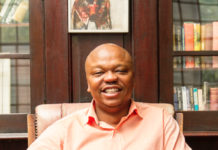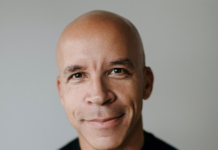The groundswell of conscious consumerism has been well documented over the last few years, as consumers look to products and brands that reflect their own ethical and social standpoints. This is according to Dale Hefer, CEO of the annual Nedbank IMC ‘Marketing is Business’ conference, which will be held remotely on Thursday, 29 July.
Last year, an Accenture survey of almost 9000 consumers in 20 markets around the world found that 61% of respondents had been making more environmentally friendly, sustainable or ethical purchases since the start of the pandemic. Nine out of 10 claimed that they would continue doing so. As information becomes more accessible and as the impact of industry on natural resources is more keenly felt, the once far-off global concerns around issues such as air pollution, harmful food additives and even unfair labour practices have moved into the personal domain.
In swift response, companies are embarking on innovative strategies to retain and attract their conscious consumers. The evidence is everywhere: Unilever has announced plans to develop carbon labelling; both L’Oreal and Evian have committed to move towards carbon neutrality; H&M’s technological innovations have enabled the production of clothing from recycled and recyclable materials; IKEA has launched a buyback and recycling scheme and retailers everywhere are discontinuing single use plastic bags.
Alongside these innovations, marketers are working hard to win over the conscious consumer; not only in heralding their own sustainability efforts, but by aligning with wider social, environmental and even political causes. However, a recent report on conscious consumption (by creative international agency, Cult) cautions that in the urgency to align and adapt to the perception of the conscious consumer, there is the risk that marketers and agencies could fall into ‘flawed patterns of thinking that might be based on unchallenged stereotypes and unconscious bias’. This underscores commentary by United States-based Pew Research Centre, which states that while brands may be going to great lengths to attract what they believe to be the profile of the conscious consumer, significant numbers of potential buyers are ignored due to a ‘prevailing, narrow interpretation of the audience.’
To interrogate this further, Cult, in partnership with a British-based organisation Diversity Standards Collective, gathered a focus group of 20 people who fell outside the common stereotype of the conscious consumer, yet who all practiced conscious consumer behaviours. Discussions amongst the group revealed a belief that conscious consumption brands catered to the (largely white) ‘tree hugger’ or ‘hippy’ stereotype. Veganism was raised as an example, where certain group members who were from traditionally vegan cultures and part of the ‘working class or racialised communities’ felt invisible or ignored by conscious companies whose target markets appeared to be ‘white, western vegans’. Interestingly this mirrored previous work by the Pew Research Centre, which in 2016 found that black Americans were almost three times as likely to be vegan and vegetarian than other Americans.
Kantar gathered consumers into ‘eco segments’ in their 2020 research on sustainable living and waste reduction. (The survey included more than 80,000 respondents in 19 countries; although no countries in Africa were included.) Respondents were placed into one of three eco segments depending on their sustainability-focused behaviours (such as recycling). The segments were termed eco actives, eco considerers and eco dismissers.
Most of the respondents fell within the eco dismissers segment, accounting for 43% of all respondents. This was followed by eco considerers at 39% and eco actives at 20%. Eco dismissers are deemed to have little or no interest in environmental challenges in the world around them, or in behavioural changes. This segment consisted largely of over-35s from lower social classes and large households. The segment had a combined potential spending power of around USD 759 billion compared to USD 699 billion of eco considerers and USD 382 billion of eco actives.
Kantar’s conclusion regarding the eco-segmentation section of the report chose to focus primarily on the significant opportunity that existed within the eco considerers and eco actives segments, where ‘many opportunities lie with those who are most engaged’. What the conclusion did not consider, at least in the report, was what might account for the poor response by eco dismissers to the issues of sustainability. Why do they have little to no interest in environmental challenges? Could one of the reasons be a disconnect between the messaging and calls to action of conscious companies and the needs and drivers of eco dismissers?
It is important to be clear that the discussion around conscious consumers is not based on the economic disparities between population groups – evidence indicates that price point still remains central to the purchase decisions of conscious consumers. For marketers, the discussion must be one of definition and whether there has been a full interrogation – devoid of unintentional bias or stereotype – of who their conscious consumer really is. In the absence of this critical undertaking, not only could sustainability strategies be rendered less effective, but swathes of people could be left out of our collective drive towards a sustainable future.
About Nedbank IMC
The Nedbank IMC is Africa’s foremost integrated marketing conference aimed at local and African marketers, and a consecutively sold-out event in 2019 and 2020 (lauded as the ‘virtual benchmark’). This year’s event will be held on 29 July.Tickets are priced at R1999.00 (excl. VAT). A 50% discount is available to registered marketing or business students. Email: info@imcconference.com
Modern Marketing, a proud media partner of the Nedbank IMC, has announced a competition where you could win one of 20 tickets, worth over R2000 each, to the conference. Read more here.
NEDBANK IMC
+27 10 592 1888
dale@imcconference.com
www.imcconference.com









